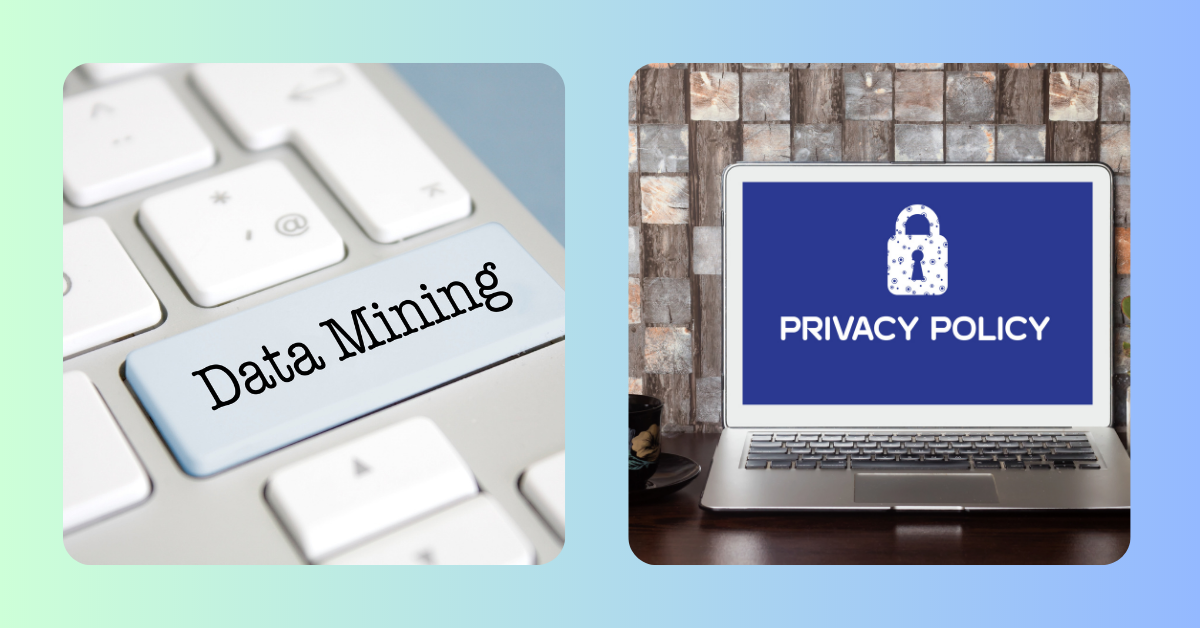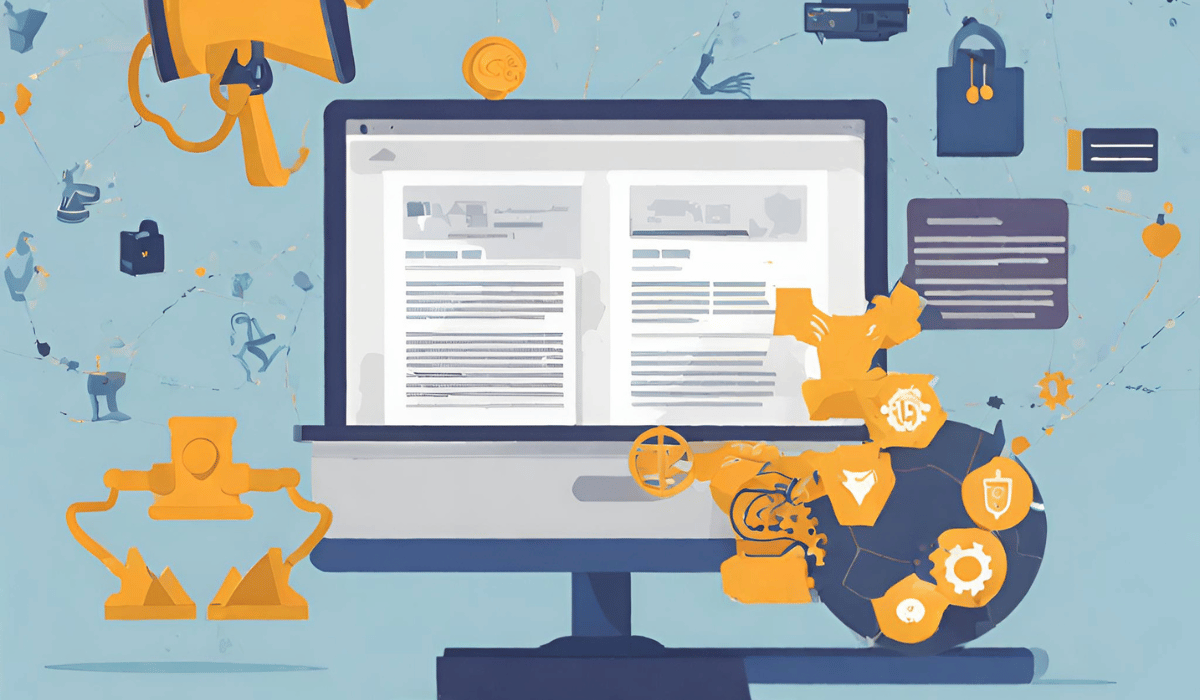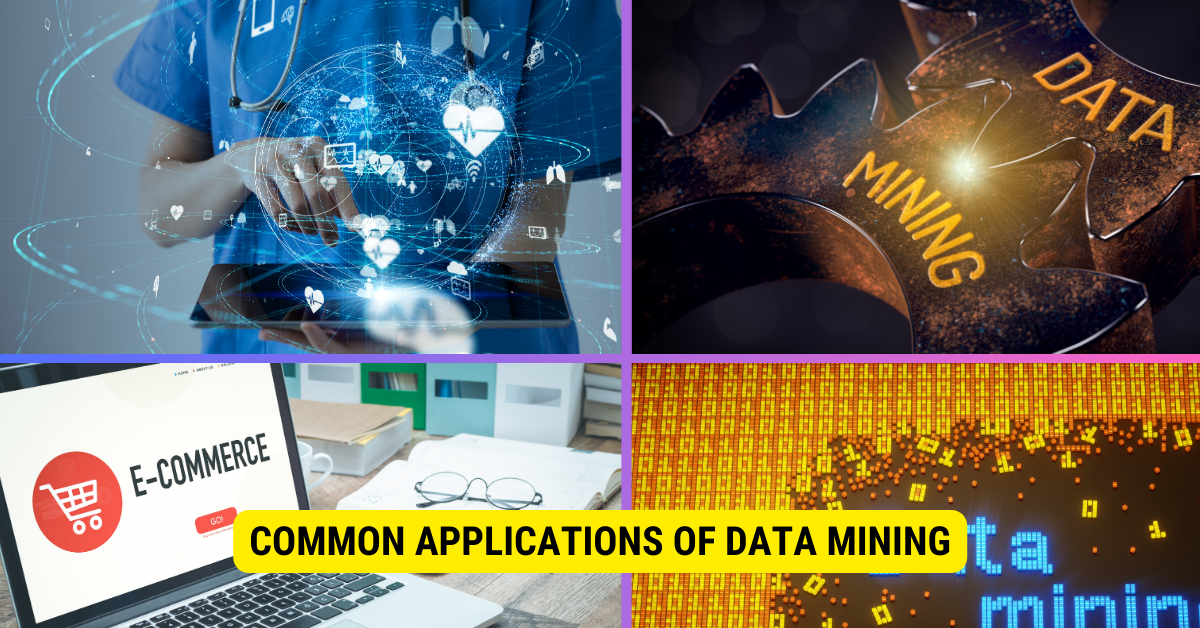Data mining involves extracting patterns and information from large datasets. While it has valuable applications, its privacy implications raise concerns about the potential misuse of personal data.
In this digital age, data mining is a concept that has quickly become a hot topic. But what does it mean, and what are the implications for individual privacy? I will explore these questions and more, delving into the basics of data mining, its relationship with privacy, the ethical and legal aspects, and how you can protect your privacy in the wake of widespread data mining.
Understanding the Basics of Data Mining
Before discussing the implications, it’s essential first to understand the basics of data mining. So, what exactly is it?
Data mining is the process of analyzing raw data from different perspectives and summarizing it into useful information. It allows businesses and researchers to extract patterns, trends, and insights from a large data pool.
But how does data mining work? Let’s dive deeper into the process.
Definition and Purpose of Data Mining
The main goal of data mining is to help corporations and organizations make better decisions. It enables them to predict outcomes, improve strategies, and, in turn, increase overall performance and gain a competitive edge.
Data mining utilizes sophisticated algorithms and statistical techniques to uncover valuable information that can drive business growth and innovation. It goes beyond simple data analysis and provides a deeper understanding of complex datasets.
The Process of Data Mining
Data mining is not a straightforward process; it involves multiple stages. This includes data cleaning, integration, selection, transformation, mining, pattern evaluation, and finally, knowledge presentation. When followed diligently, these steps can reveal patterns and relationships within the data that might go unnoticed.
First, data cleaning removes errors, inconsistencies, or missing values from the dataset. Next, data integration combines data from different sources into a single, unified dataset. Data selection focuses on identifying the relevant variables for analysis, while data transformation prepares the data for mining by converting it into a suitable format.
Once the data is prepared, the actual mining process begins. This stage involves applying various algorithms and techniques to identify patterns, associations, and correlations within the dataset. Pattern evaluation determines the significance and usefulness of the discovered patterns, and finally, knowledge presentation involves presenting the findings in a meaningful and understandable way.
Common Applications of Data Mining
Data mining has a wide range of applications. Businesses use it for market segmentation, customer retention, fraud detection, and more. For example, companies can identify segments with similar preferences by analyzing customer purchase history and behavior and tailor their marketing strategies accordingly.
In healthcare, data mining predicts disease patterns and improves services. Medical professionals can identify risk factors and develop preventive measures by analyzing patient data. It also helps in personalizing treatments and improving patient outcomes.
The finance sector utilizes data mining for credit scoring and risk management. By analyzing financial data, banks, and financial institutions can assess the creditworthiness of individuals and businesses, enabling them to make informed lending decisions. It also helps in identifying potential fraudulent activities and minimizing risks.
In e-commerce, data mining is used for recommendation systems and customer segmentation. By analyzing customer preferences and behavior, online retailers can provide personalized product recommendations, enhancing the shopping experience. Customer segmentation helps target specific groups with tailored marketing campaigns, increasing conversion rates.
These are just a few examples of how influential and pervasive data mining is in our everyday lives. It has become an indispensable tool for businesses and industries across various sectors, revolutionizing how decisions and strategies are implemented.
The Intersection of Data Mining and Privacy
While data mining has its benefits, it also carries significant privacy implications. How does it impact privacy, and where can we see its effects?
Data mining, by nature, requires access to vast quantities of data, often personal and sensitive. This systematic data collection and analysis can lead to legitimate concerns about privacy. In essence, it can make individuals feel monitored, tracked, and, ultimately, vulnerable. These concerns have led to heated debates on balancing the benefits of data mining with the need for privacy.
When it comes to the impact of data mining on privacy, there are various aspects to consider. One of the primary concerns is the potential for data breaches. With data mining, organizations accumulate vast amounts of personal information, including names, addresses, phone numbers, and financial details. If this data falls into the wrong hands, it can lead to identity theft, fraud, and other malicious activities.
Moreover, data mining techniques often involve using algorithms and machine learning models to analyze patterns and make predictions. While these algorithms can provide valuable insights, they can also inadvertently reveal sensitive information about individuals. For example, a data mining algorithm might analyze purchasing patterns and inadvertently disclose someone’s medical condition or personal preferences.
Real-life Examples of Privacy Breaches Due to Data Mining
There are several instances where data mining has led to significant privacy breaches. For example, the scandal involving Cambridge Analytica and Facebook, where data on millions of users was improperly obtained and used for targeted political advertising. This case represents one of the most high-profile instances of how data mining can infringe on personal privacy.
In another instance, a major retail company faced backlash when it was discovered that its data mining practices involved sharing customer purchase history with third-party advertisers without explicit consent. This revelation sparked concerns about the extent to which personal information is being collected and shared without individuals’ knowledge or consent.
Furthermore, data mining in the healthcare industry has raised concerns about patient privacy. With the increasing digitization of medical records and data mining techniques to analyze patient data, there is a risk of unauthorized access to sensitive medical information. This compromises individuals’ privacy and raises ethical questions about the responsible use of healthcare data.
It is worth noting that data mining is not inherently malicious or privacy-invasive. Data mining can provide valuable insights and drive innovation when conducted responsibly and with proper safeguards. However, it is crucial to balance reaping the benefits of data mining and protecting individuals’ privacy rights.
The Ethical Debate Surrounding Data Mining
The intersection between data mining and privacy fuels a riveting ethical debate. What are the benefits and downsides of data mining, and how can we address the associated ethical dilemmas?
Data mining, the process of extracting patterns and information from large datasets, is a double-edged sword. On the one hand, it provides valuable insights that can revolutionize industries and improve our quality of life. With data mining, businesses can identify consumer trends, tailor their marketing strategies, and make informed decisions based on patterns and correlations that would otherwise go unnoticed. Researchers can also use data mining to uncover patterns in healthcare data, leading to advancements in medical treatments and disease prevention.
However, data mining also has the potential to invade privacy and be misused for harmful purposes. Concerns about surveillance, identity theft, and discrimination arise as companies collect vast amounts of personal data. The unauthorized sharing or selling of personal information can lead to privacy breaches and compromise individuals’ security. Moreover, data mining techniques can manipulate public opinion, perpetuate biases, and reinforce existing inequalities.
Balancing Data Mining and Privacy: An Ethical Dilemma

Striking a balance between the benefits of data mining and the preservation of privacy is a major ethical dilemma. As technological advancements outpace regulations and the public’s understanding of the implications, the data mining debate becomes even more complex.
One approach to address the ethical dilemmas associated with data mining is by implementing strict regulations and guidelines. Governments and regulatory bodies can establish laws that protect individuals’ privacy rights, ensuring that data mining practices are transparent, accountable, and conducted with informed consent. By requiring organizations to obtain explicit consent from individuals before collecting and analyzing their data, individuals can maintain control over their personal information.
Another aspect to consider is the importance of education and awareness. By increasing public understanding of data mining and its potential implications, individuals can make informed decisions about the type and amount of data they are willing to share. Educating the public about the benefits and risks of data mining can empower individuals to protect their privacy and demand ethical practices from organizations.
Furthermore, developing and adopting privacy-enhancing technologies can help mitigate some ethical concerns associated with data mining. Techniques such as differential privacy, which adds noise to datasets to protect individual privacy while allowing for meaningful analysis, can strike a balance between privacy and data utility. Similarly, encryption and secure data storage methods can safeguard sensitive information from unauthorized access.
Ultimately, the ethical debate surrounding data mining requires a multi-faceted approach. It necessitates the collaboration of policymakers, industry leaders, researchers, and the public to establish ethical guidelines, promote transparency, and ensure that data mining practices align with societal values and respect individuals’ privacy rights. By addressing these ethical dilemmas head-on, we can harness the potential of data mining while safeguarding privacy and promoting a more equitable and responsible use of data.
Legal Implications and Regulations of Data Mining
In the face of these ethical debates, laws and regulations around data mining have begun to surface. But what are these, and how do they seek to regulate data mining?
Current Laws and Regulations on Data Mining

The laws surrounding data mining are complex and varied. In the US, regulations differ by state and sector. Europe has implemented the much-celebrated General Data Protection Regulation (GDPR), which provides some of the strongest privacy protections in the world.
The Role of GDPR in Data Mining
The purpose of the GDPR is to give individuals control over their data. It includes provisions for data minimization, accuracy, and the right to be forgotten. Companies have had to adapt their data mining practices to ensure compliance with this regulation.
Protecting Your Privacy in the Age of Data Mining
Given the increasing use of data mining, how can individuals protect their privacy?
Tips to Safeguard Your Personal Information
There are several steps one can take to safeguard their personal information online. Simple steps such as enabling two-factor authentication, being mindful of third-party apps on social media platforms, and regularly reviewing privacy settings on online accounts can go a long way in protecting privacy.
The Future of Privacy: Predictions and Suggestions
In this age of extensive data mining, the future of privacy seems uncertain at best. However, with an increased awareness of the dangers posed by unrestricted data mining and a push for stronger legislation, it’s conceivable that privacy can still be protected. Individuals must be vigilant and proactive in safeguarding their personal information.
As we grapple with these complexities, one thing is certain: the discourse around data mining, its implications, and the best path forward is far from over.
Key Takeaways
- Data mining involves analyzing large datasets to discover patterns, relationships, and insights.
- While data mining has numerous positive applications, it raises concerns about privacy due to the potential identification of sensitive information.
- Data mining can lead to the risk of reidentification, de-anonymization, and the disclosure of personal details.
- Organizations must balance the benefits of data mining with the need to protect individuals’ privacy rights.
- Implementing data anonymization and aggregation techniques can mitigate privacy risks in data mining.
FAQs
Q1: Can data mining identify individuals from anonymized data?
A1: In some cases, data mining techniques can potentially reidentify individuals from supposedly anonymized data.
Q2: How can organizations protect privacy while performing data mining?
A2: Organizations can use techniques like data anonymization, aggregation, and differential privacy to protect privacy in data mining.
Q3: Can data mining violate data protection regulations?
A3: Data mining practices must comply with data protection laws like GDPR to ensure individuals’ rights and privacy are respected.
Q4: Is data mining limited to large organizations?
A4: Data mining is accessible to various organizations and individuals due to technological advances and the availability of data analysis tools.
Q5: What are some positive applications of data mining?
A5: Data mining has applications in areas like healthcare (diagnosing diseases), finance (fraud detection), and marketing (customer segmentation).
Final Words
Though an incredibly powerful tool for extracting valuable information from vast datasets, data mining raises significant privacy concerns. On the one hand, it allows for creation of targeted services and personalized experiences, providing immense benefits to businesses and consumers. However, on the other hand, the intrusive nature of data mining practices, if left unregulated, may infringe upon individual privacy. This underscores the need for robust data protection policies, stringent regulations, and advanced encryption techniques to protect user data. The exploitation of personal information for data mining must maintain a balance between economic advancement and the preservation of individual privacy rights.

